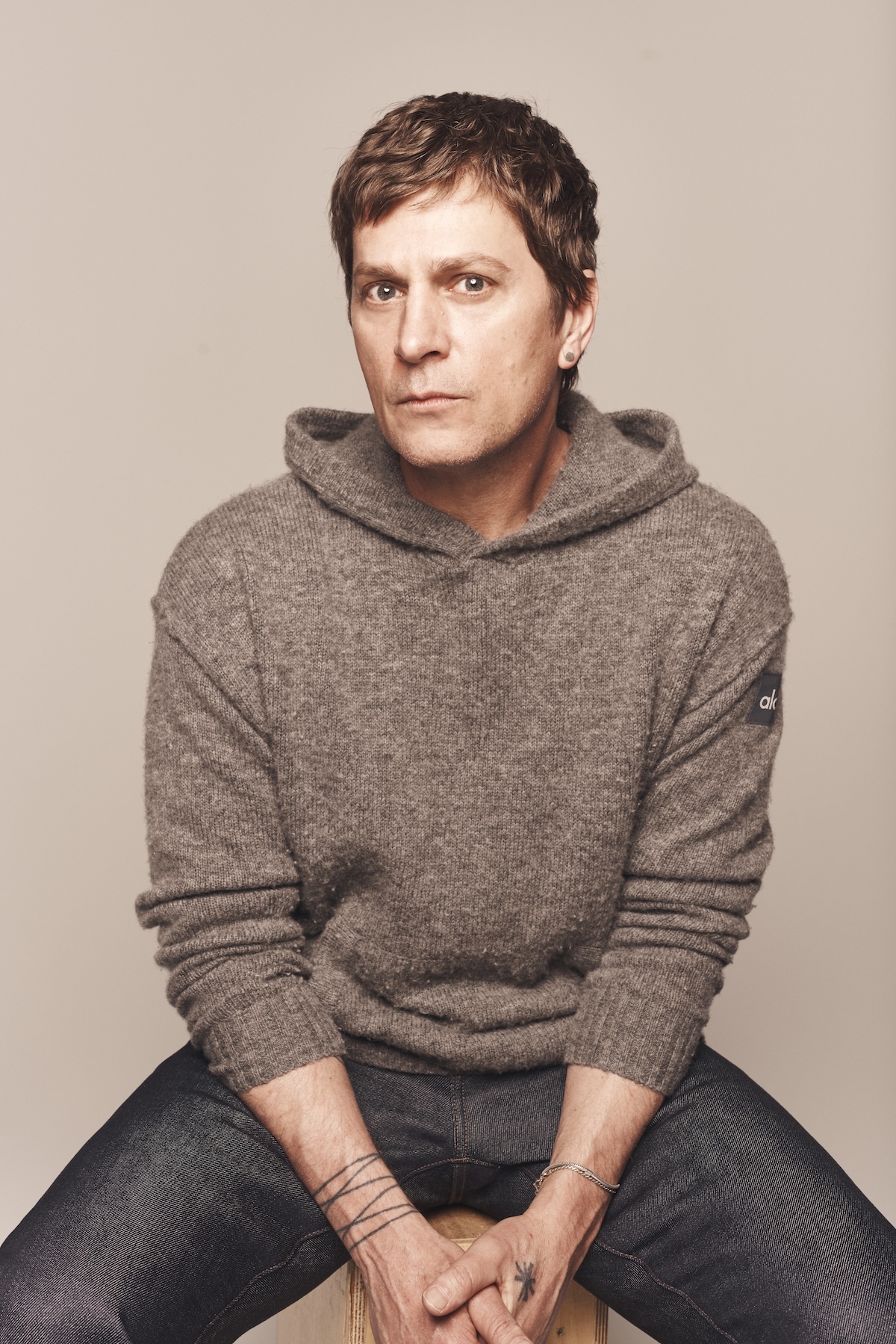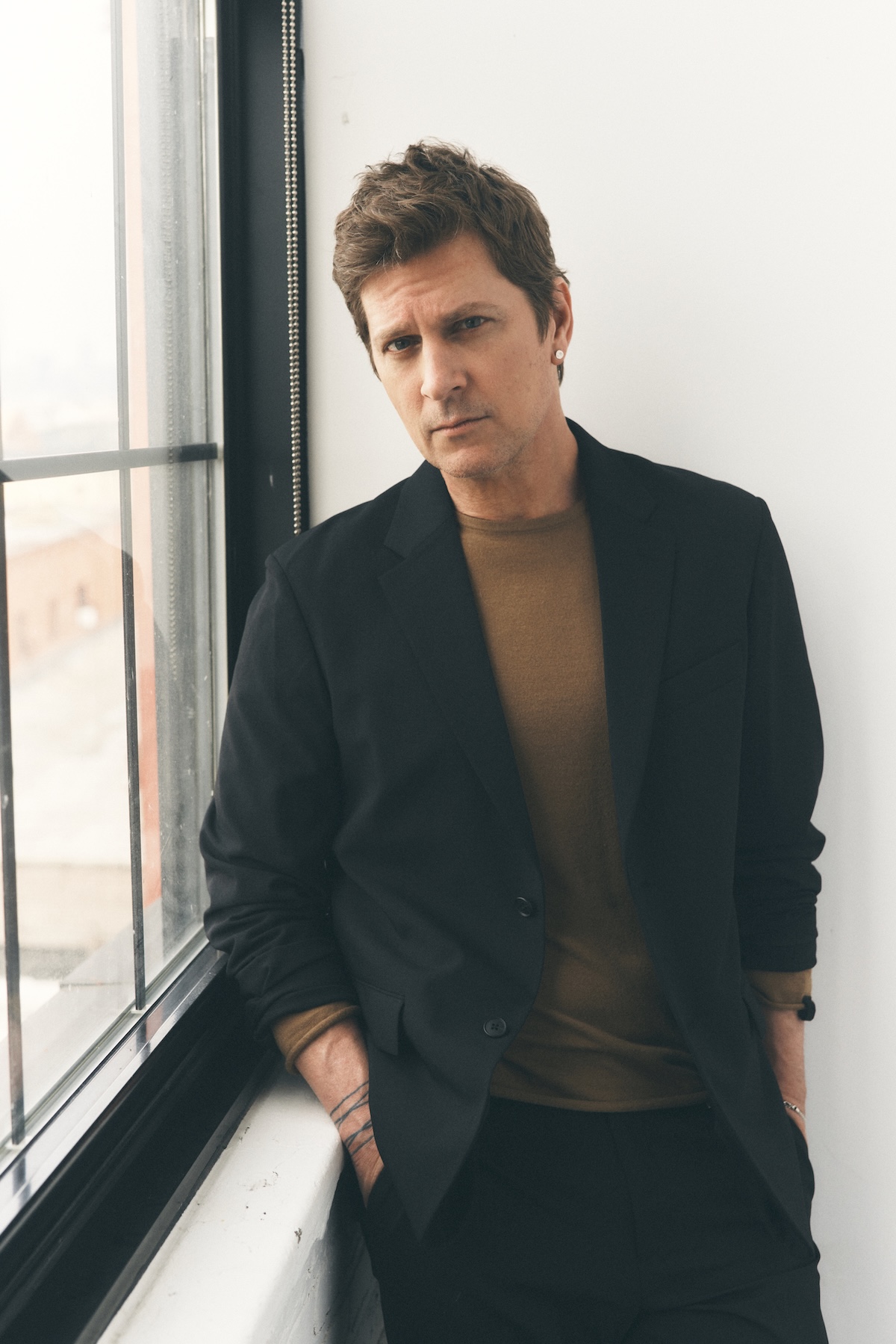As I greet Rob Thomas on our video call, he asks me if I’m getting any of “the weather” that they’re experiencing in the New York City area, where he lives.
Unaware of the torrential storms that were, at the time of our call, getting ready to pound his region and leaving it in a state of emergency, I tell him that here in southeast Tennessee, it’s finally feeling like fall. As I sit on my large front porch, clear blue skies are overhead with a moderate temperature of 76 degrees and practically no humidity. There’s a wonderful breeze that’s causing the first few brown leaves of the season to fall from the oaks in my front yard.
I certainly didn’t mean to rub it in. But that’s okay. Thomas goes with it.
“Fall’s my favorite time of year,” he says. But Thomas will soon be departing on the Australian leg of his All Night Days tour—supporting his sixth solo album of the same name, released September 5th—and won’t be able to enjoy the fall foliage he loves so much.
Accompanying the Matchbox Twenty frontman is his 27-year-old son, Maison, whom he recently hired as his solo band’s guitarist. Thomas’ son also has his own band, the Lucky, which opened for Thomas during a few of his U.S. tour dates.
“He’s one of my best friends in the world,” says Thomas, wearing a black T-shirt, looking pretty much the same as he did almost 30 years ago, when Matchbox Twenty released its debut album, Yourself or Someone Like You, in 1996. “It’s been the most fun that he’s had. When I mentioned it, the first thing he said was, ‘This will be the most time we’ve gotten to spend together at one time.’ I thought that was the sweetest thing ever, because I felt the same way.”
Growing up, however, Thomas didn’t have the same experience with his own parents.
Thomas’ mother, Mamie, was 16 when she gave birth to his older half-sister, Melissa, and 21 and remarried by the time Thomas was born in Landstuhl, Germany. His father, Bill, a sergeant in the U.S. Army, left when he was 2, due to Thomas’ mother’s alcoholism.
“Me and my dad weren’t very close because my dad couldn’t handle my mom, and I understand that, but at the same time, he lumped me in with her and then cut us both off as a means of his survival,” Thomas says.
With very little money, Thomas, Melissa, and his mother moved to a trailer park in South Carolina to be close to his maternal grandmother, who ran a small gas station, where she sold moonshine and marijuana under the counter. When he was 10, they moved to Florida.
While Thomas says he and his mother could be very close, their household was far from stable. “It was a very Jekyll and Hyde situation,” he says. “[She was] the kind of woman who would buy extra gifts at Christmas, so if anybody came by, she’d have something to give to people. The kind of person that, when I was a young Dukes of Hazzard fan, came into my room to explain to me why that giant flag on my wall didn’t mean the General Lee. Everyone loved my mom. When they met my mom, she was this light, and she was so much fun, and everybody thought that she was the best. And then it would swing on a dime to these very physical, violent situations.”
Two years later, his sister left home to get married, and his mother was diagnosed with Hodgkin lymphoma, which meant Thomas was forced to be her sole caretaker at 12, which inspired one of Matchbox Twenty’s biggest hits, “3 AM.”
Thomas’ mother eventually went into remission, and Thomas felt his relationship with her strain once again because of her drinking.
It was in spite of his mother that he found music.
“It wasn’t something that she encouraged,” he says. “It was something that she openly told me I was never going to be good at, and I was never going to make it at, and I needed to let it go. Which I think in her own way was probably her protecting me, because it does seem like a pipe dream to do something like that.”

Dropping out of high school at 17, he hitchhiked around the South, slept on park benches and at friends’ houses, and along the way, met a group of musicians when he moved to Orlando.
“I’m not sure if it was that I was looking for music or if it was just something that was so comforting to find, like a fraternal group that I felt like took me in and I could start to build an extended family, where maybe I didn’t have one at home,” he says.
In 1993, Thomas, along with bassist Brian Yale, drummer Paul Doucette, and guitarists Jay Stanley and John Goff, formed Tabitha’s Secret. The band had a loyal following but eventually broke up. Thomas, Doucette, and Yale formed another group, this time with Adam Gaynor and Kyle Cook on rhythm and lead guitar, respectively: Matchbox Twenty.
With hits like “Push,” “Real World,” and “If You’re Gone,” among others, Matchbox Twenty dominated the late 1990s and early 2000s. The band took several breaks over the years. Thomas put out five solo albums between 2005 and 2021, sporadically reuniting with his Matchbox Twenty bandmates to tour and release two more records, 2012’s North and Where the Light Goes in 2023.
It was during the sessions for Where the Light Goes that Thomas began writing the songs that would appear on All Night Days. While three of his solo songs ended up on Matchbox Twenty’s fifth album, “I Believe It,” and “No Good at Loving You” were tracks the band worked on that landed on Thomas’ new album.

But it’s the song “Thrill Me” that holds particular weight with him at this stage in his life, a song that’s about his wife, Marisol Maldonado.
“I’ve been with my wife for 27 years,” he says. “We’ve had spectacular fights. But she’s the closest person in the world to me. And I feel like ‘Thrill Me’ is the kind of love song that I probably couldn’t have written when I was younger. I think as I get older, there’s no fear of sentimentality.”
With sentimentality comes vulnerability. And “Hard to Be Happy,” the album’s third track and lead single, which peaked at No. 19 on the Billboard Adult Contemporary chart earlier this year, is a perfect example of that. With lyrics such as, “So if you see me crying / I don’t need no consolation / I just need some time / And I know that I’m gonna be fine but I can’t say why,” I ask Thomas if he is happy.
“No,” he says. “I mean, I feel like I can find happiness pretty easily. And that just means finding some peace and solitude in your own head. The end is hurtling at us at a greater speed every day. And everything that we do to some degree is just to try and not think about the fact that that’s happening. So [to] that degree, I don’t trust anybody who just says, ‘Oh, I’m happy,’ because you’re hiding something.”
He admits, though, that at 53, he’s happy more times than he’s not. And that’s partly because he’s always surrounded himself with male friends who support each other, like his Matchbox Twenty bandmates.
“The biggest joke we always have is somebody says, ‘Oh man, you look great.’ And I’m like, ‘Oh, but I’m dead inside,’ and I’m only half joking. Not being aware that that exists inside of you means you neglect it. And if you neglect it, then it grows and it becomes an even bigger part of you.”
He tells me that before his mother passed away in 2007 at 55, he lied to her over the phone about not being able to visit her. “I just couldn’t take the drama,” he says, “And then, when she passed, I think there’s a piece of me that stayed there. Like my emotional growth just kind of stopped in that little zone, so much so that it’s palpable. There was also this guilty, guilty feeling of how much easier things were going to be. That took a long time to just be okay with feeling that way.”
Thomas believes emotional balance is something you have to find in your own way. For him, ever since he was a runaway teenager, music has been the answer. He is a man who feels comfortable baring his soul. No subject is off limits. He doesn’t save his vulnerability for his songwriting. He’s completely honest about the effects of being a child of an alcoholic.
Thomas admits that he’s a heavy drinker. “It’s not healthy, and you figure I would learn by now,” he says. “But I think I didn’t also come along with the unbelievably volatile personality that was attached to my mom; it always just kind of comes across as like, ‘Well, look at Rob. He gets so friendly when he drinks.’”
It’s something his wife and therapist have talked to him about, though he tells me he’s not quite ready to stop. He also talks to me about his OCD, his compulsive counting and touching tendencies, all of the little ticks he’s adopted in an attempt to control his environment out of a fear that something bad will happen if he doesn’t; a common affliction from childhood trauma as a means to cope. His songwriting, he says, is a product of that as well.

“I think that writing manifests itself in the same way that I can’t have too many unanswered emails, I have to go through and I have to make sure that they’re cleared out in my head if I’m writing,” he says. “And eventually I need to get that valve released so I can add more songs into there. If not, I really feel like a physical buildup in my head of all of these songs and melodies and ideas that are floating around.”
With the 30th anniversary of Matchbox Twenty’s debut release approaching next year, Thomas and his bandmates have been chatting about how to commemorate the occasion, though no plans have been made yet. He looks back at the band’s success as a gift and how their definition of success has changed over the years. When they started out, success meant getting a record deal. Then it meant having one of their albums go gold. After, it meant continuing to churn out more hits, year after year.
That’s a Herculean task for any band to achieve.
It was Bruce Springsteen who helped Thomas change his perspective while the two were at Rock in Rio 2013, that there were going to be periods where the music doesn’t feel like it’s connecting, that the band may not seem relevant. But Springsteen urged him to be patient and to keep going, because music is passed down to the next generation. In other words, the pendulum will swing back the other way eventually.
Springsteen, of course, was right. Matchbox Twenty’s 2023 Slow Dream tour was one of the band’s most successful, grossing $35 million from its North American dates.
Thomas realizes that most of the fans coming to Matchbox Twenty shows aren’t coming to hear new songs. And he’s okay with that.
“I had a really nice moment in my career where I was part of the zeitgeist,” he says. “If you have that moment and you do the right thing with it, then that can be a career as you get older. But eventually you have to let that moment go. There’s nothing cooler than seeing an old biker singing every word to ‘3 AM’ next to an 8-year-old girl who’s crying because she’s singing ‘3 AM.’ It’s a piece of success that feels very real, but it’s not something that we could have ever anticipated.”



